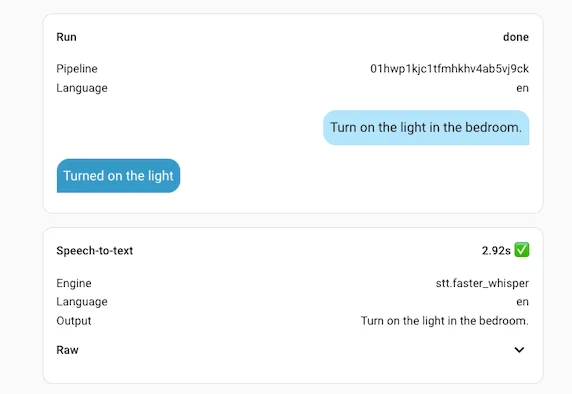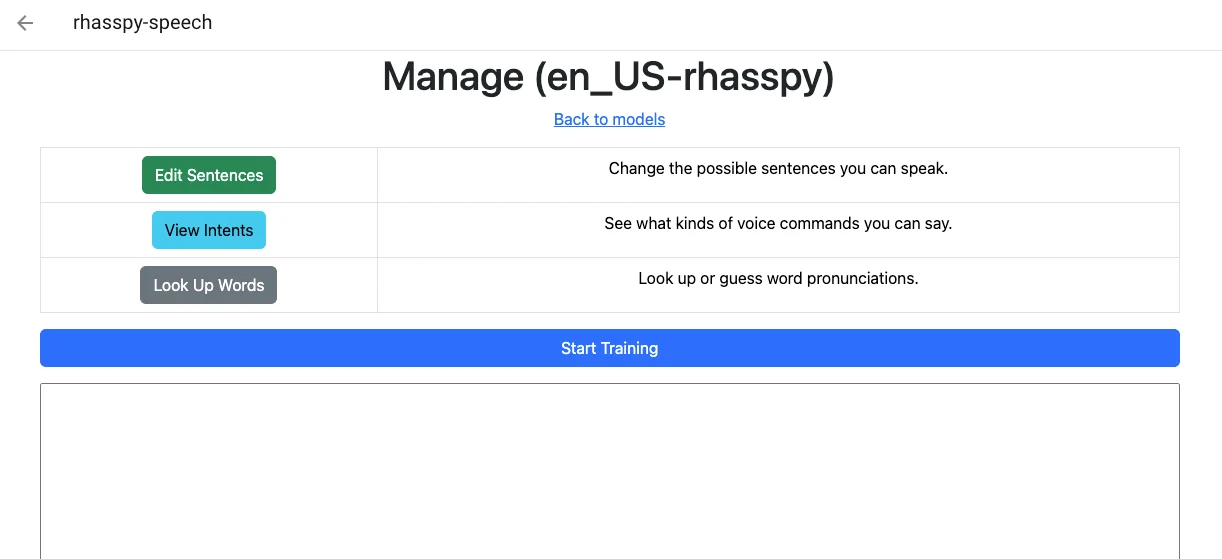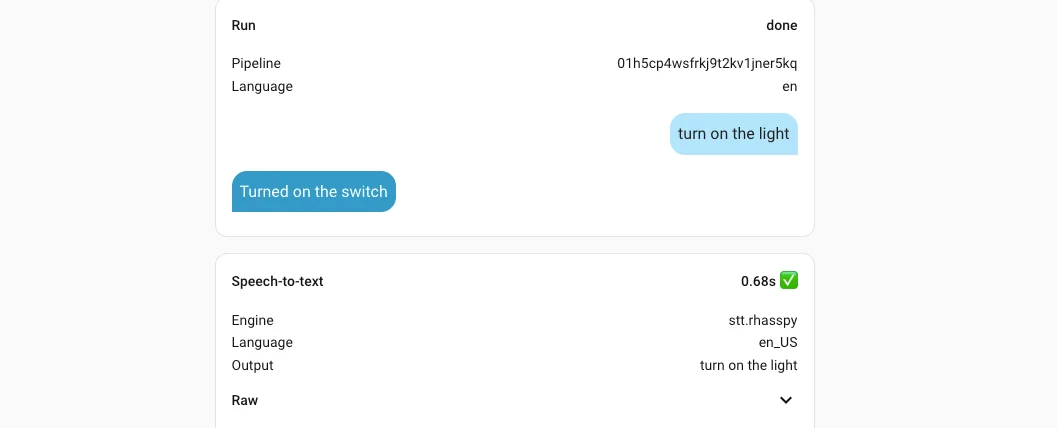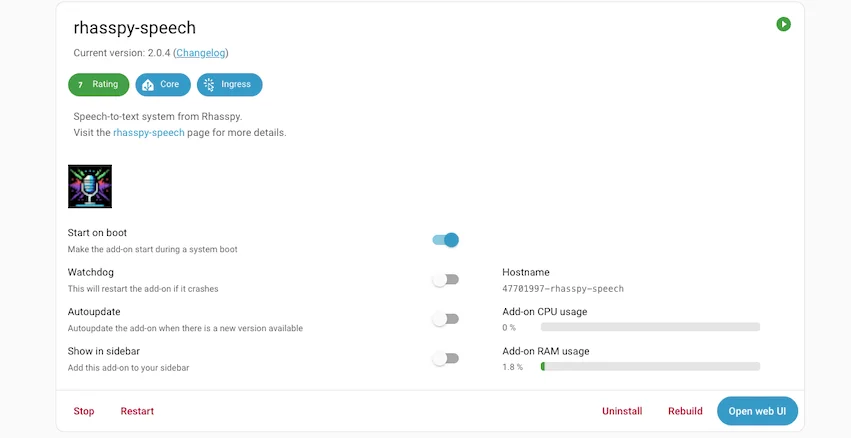Rhasspy Speech: Boost Home Assistant Voice Control on Raspberry Pi — Faster Than Whisper

Written by
Featured Video
Table of Contents
If you’ve been exploring local voice assistants with Home Assistant, you’ve probably come across the powerful but resource-heavy Whisper speech-to-text engine. I’ve been down that road myself — starting with an ESP32 and OpenWakeWord, moving to an ESP32-S3 with on-device wake word detection, and eventually trying out the Voice Assistant Preview Edition from Home Assistant.
While these setups varied, one thing stayed constant: Whisper was always the speech-to-text engine. And while it’s accurate, it can be slow and demanding — especially if you’re running Home Assistant on a Raspberry Pi.
The Whisper Challenge: Accuracy vs Speed
Whisper comes in different models:
- Small models: Faster but less accurate.
- Large models: More accurate, but slower and more resource-intensive.
For reference, I’ve been using the medium-int-8 model, which:
- Converts speech to text in about 3 seconds on my mini PC.
- Has roughly 90% accuracy.

But most of us start with a Raspberry Pi, and for that hardware, Whisper’s heavier models can feel painfully slow. The question is — do you really need to upgrade to a mini PC for good voice control?
The answer: not necessarily.
Meet the Rhasspy Speech
The Rhasspy Speech Addon is a lightweight, fast alternative to Whisper. It’s available directly from the Home Assistant Add-on Store.
How It Works
Instead of transcribing anything you say, Rhasspy matches your commands to a set of pre-trained phrases. For example:
- “Turn on the light.”
- “What’s the time?”
- “What’s the temperature in the bedroom?”

The Rhasspy Speech addon lets you access the Intents section to view all devices integrated with your Home Assistant. Using the UI, you can Train it with common device commands, add your own custom sentences using a simple YAML format. Then you can integrate the addon via the Wyoming integration so your voice assistant pipeline can start using Rhasspy for speech-to-text.
Lightning-Fast Performance on Raspberry Pi
When I tested Rhasspy, it recognized my speech in under 1 second — on a Raspberry Pi 4.
That’s huge for Pi users who don’t want to invest in a mini PC.

My 15-Day Experience
Over the past two weeks of daily use, Rhasspy Speech has consistently impressed me with its near-instant recognition speed. Commands are processed in under a second, which makes interacting with my smart home feel natural and fluid. In terms of accuracy, I’ve observed an average of around 80%, which is slightly lower than Whisper’s ~90% detection rate. However, in real-world use, the snappy responsiveness often outweighed the occasional misinterpretation.
As a result, I’ve completely switched to using Rhasspy Speech as my primary speech-to-text engine for everyday Home Assistant control, finding it far more enjoyable for quick and common voice commands.
When Rhasspy Might Fall Short
Rhasspy works brilliantly for everyday, common voice commands, but it’s not a one-size-fits-all solution. If you’re using AI agents and want to ask open-ended questions or have more natural conversations, you might find it not useful. The same goes for very customized phrasing — unless you’ve taken the time to train Rhasspy with those exact sentences, it may not always understand what you mean.
Installation and Setup
On Home Assistant OS
Getting started is straightforward — just head to the Add-on Store, search for Rhasspy Speech, and install it. Once it’s running, you can use the built-in UI to train the addon with your common sentences and custom commands.

On Home Assistant Container
If you’re running Home Assistant in a container, you can still use Rhasspy Speech by running it as a Docker container. In this setup, there’s no training UI — instead, Rhasspy automatically trains itself when it starts, using the devices and aliases already in your Home Assistant setup. The only catch is that if you add or rename devices, you’ll need to restart the container so it can pick up the changes.
Here is the docker compose definition
services:
wyoming-speech-to-phrase:
image: rhasspy/wyoming-speech-to-phrase
container_name: wyoming-speech-to-phrase
ports:
- "10300:10300"
volumes:
- ./models:/models
- ./train:/train
command: >
--hass-websocket-uri ws://<Your Home assistant IP>:8123/api/websocket
--hass-token <replace this with your Home Assistant Token>
stdin_open: true
tty: true
Why Rhasspy is Worth a Try
Rhasspy Speech is a quick, lightweight alternative to Whisper for Home Assistant voice control. If you’re on a Raspberry Pi 4 or 5, it’s an easy way to keep things fast and responsive without spending money on a more powerful PC.
🙌 Support & Subscribe
If you enjoyed this project and want to see more like it:
-
✅ Subscribe to the YouTube channel
-
☕ Support my work on Patreon or Buy Me a Coffee
-
🔁 Share this article with fellow makers and tinkerers